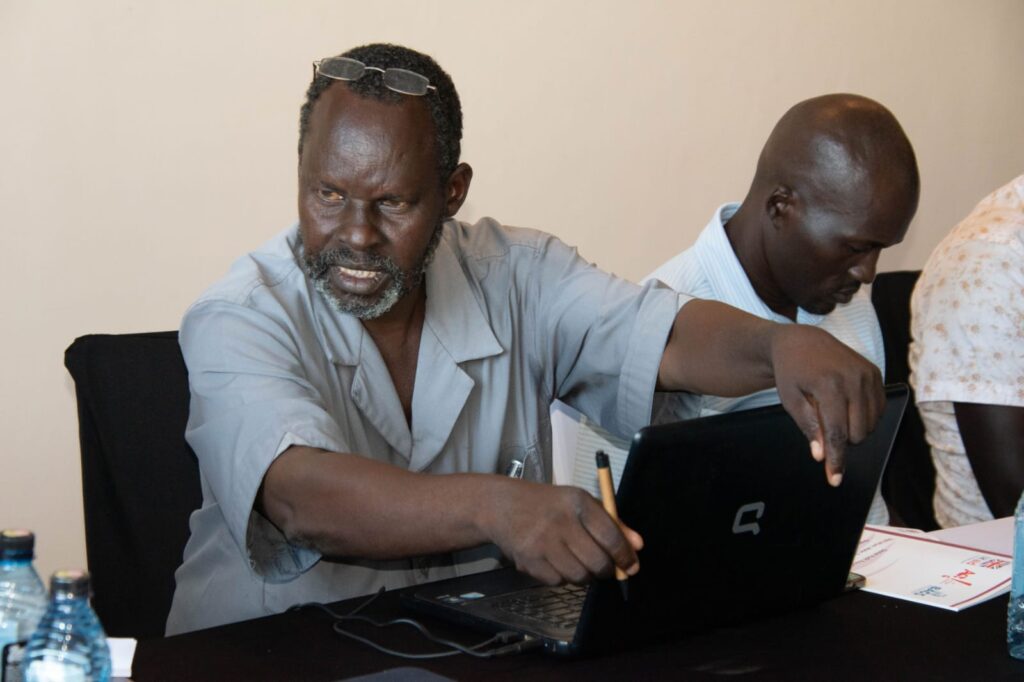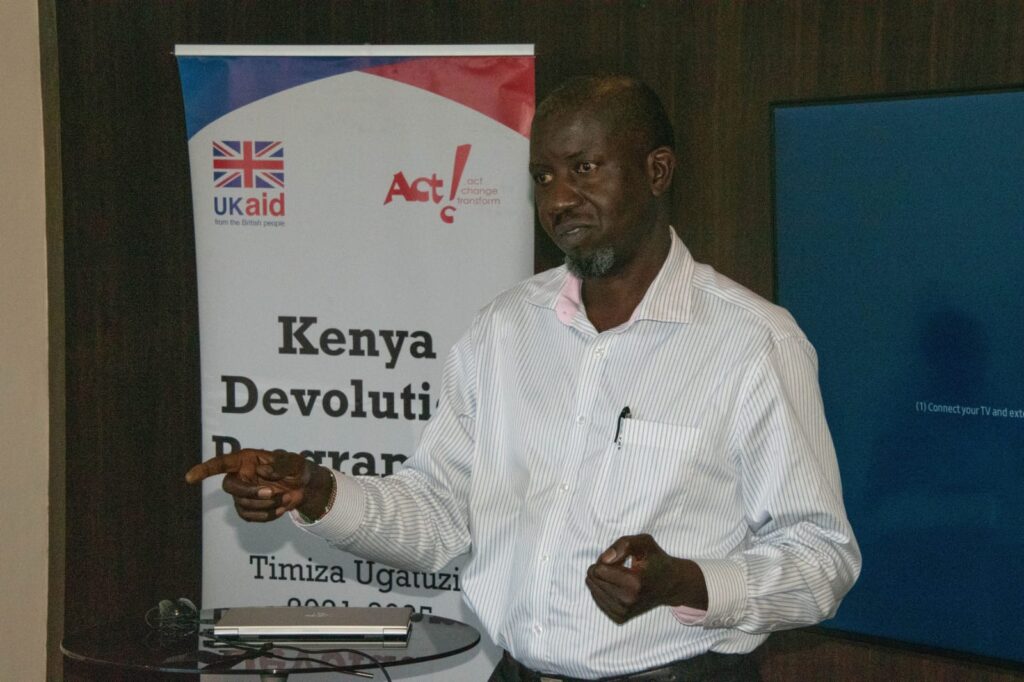A social audit has flagged down development projects by Kisumu County Government in four sub counties.
The audit launched on February 14, was conducted on projects implemented between 2019 and 2022 in four wards of Awasi Onjiko (Nyando), Central Kisumu (Kisumu Central), Chemelil Tamu (Muhoroni) and Kolwa Central (Kisumu East).
Budget Action Groups (BAGs), a consortium of civil society organizations working in parts of western Kenya evaluated 12 projects in Agriculture, Water, Environment and Climate sectors.
According to the report, of the 12 projects audited, six were completed, three were poorly done and three were classified as ghost projects.
In Kisumu Central Ward, the consortium audited three projects; distribution of dairy cows, distribution of day-old chicks, and distribution of chicken feeds, all implemented during the 2022/2023 Financial Year.
The audit noted that the cost of the dairy cows was exaggerated, as reports indicated Sh2.5 million was used in the acquisition of 12 cows, meaning each cow cost Sh208, 000.
“According to the local community, Sh208, 000 could buy three dairy cows,” read the report in part.
Overpriced projects
The report also indicated that Sh2 million was spent in acquisition of 7, 000 one-day old chicks, meaning each chick went for Sh285, what beneficiaries said was more than three times the market price.
The report however noted that Sh2 million chicken feed was a ghost project as no feeds were distributed, even as County Budget Outlook Paper recorded the project as complete.

In Kolwa Central Ward, the audit covered the Sh1.9 million distilling of KPA-Mbeme stream in the Financial Year 2021/2022 which the audit report claimed was done half way hence failing to solve the flooding in the area, which was the main aim of the project.
In the same ward, the audit covered the Sh2 million establishment of tree nursery at Akado Youth Polytechnic in the 2022/2023 Financial year and the distribution of food crops seeds in the Financial Year 2022/2023 which it stated were ghost projects.
Besides, the residents estimated that the local goats that were supplied to them would cost Sh2, 000 each and not the Sh14, 000 which was the cost in the approved budget
Audit Report
In Chemelil Tamu Ward, the audit covered the procurement and distribution of dairy cows at a cost of Sh1.5 million in the 2021/2022 Financial Year. The report indicated that only 36 of the expected 40 cows were distributed.
In the same Financial Year, residents said they were not informed of the cost of distribution of fingerlings, which they said delayed, hence affecting implementation of the project.
In the same ward, Sh2 million equipping of Kopere Water Project in the Financial Year 2018/2019 Financial Year was also flagged by the audit which indicated that the contractor abandoned the project half way.
In Awasi Onjiko Ward, the audit covered Sh158, 450 distribution of dairy goats to Nyalwal Community Based Organization in the Financial Year 2021/2022 in which it pointed out that local goats were supplied as opposed to the dairy goats as had been stated in the project.
“Besides, the residents estimated that the local goats that were supplied to them would cost Sh2, 000 each and not the Sh14, 000 which was the cost in the approved budget,” read the report in part.
Sh563, 800 Sorghum Value Chain project by Pala Women Group was also flagged as having only covered 15 acres for sorghum development instead of 20 which was stated in the project.
In the same ward, Sh3, 497, 905 Pala/Agoro water project muted in the 2021/2022 Financial Year was also flagged by the audit as it only served the residents for three months before drying up.
County say report is one-sided
Michael Arum, BAGs Program Manager said the project involved engaging the beneficiaries, visiting sites, and perusing relevant budget documentation.
“We used community members to access the projects, and we are glad at the levels of understanding they had on the projects,” said Arum.
However, County Director for Trade, Cooperatives and Marketing John Mingala who attended the launch of the report termed the report incomplete as it lacked the input of the county government.

Mingala also noted that the sample size for the projects audited was too small to give the correct picture of the performance of the county government in project implementation.
“We welcome the report, and we will put it into check against reports from our internal audit, national audit and monitoring and evaluation by the finance department,” he said.
He however noted that it is healthy for the public and other non-state actors to carry out social audits of government projects as it improves public discourse in the development realm.
“The public needs to know that they have the power to make decisions, and this is what needs to be emphasised,” he added.
Civil Society Organizations (CSO) Network’s Betty Okero said there is a need to improve the effectiveness of such social audit reports so as to put responsibility on specific people.
We cannot continue to just say contractors, leaders, and government representatives and leave their names out of such reports. They need to be named so that they are made to be responsible for their acts or lack of it
Betty Okero
According to Ms Okero, there is need to mention names of contractors, government representatives and leaders involved in such projects.
“We cannot continue to just say contractors, leaders, and government representatives and leave their names out of such reports. They need to be named so that they are made to be responsible for their acts or lack of it,” she said.
